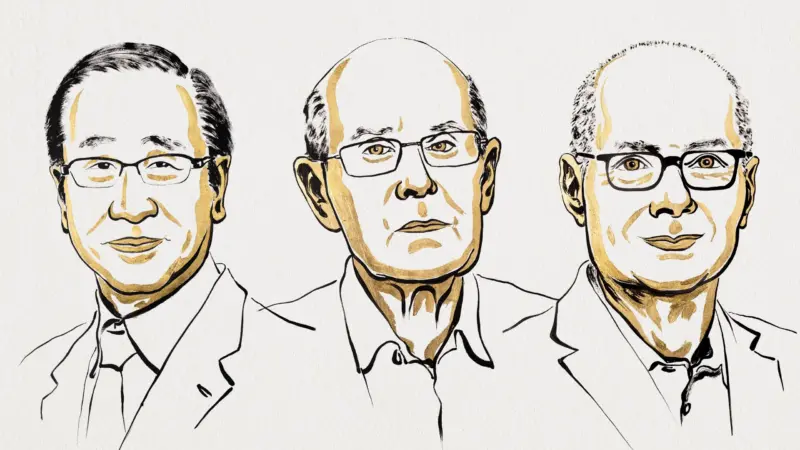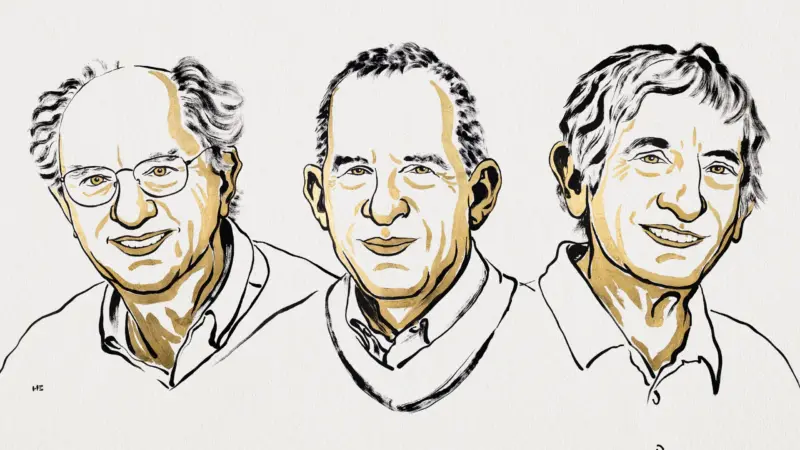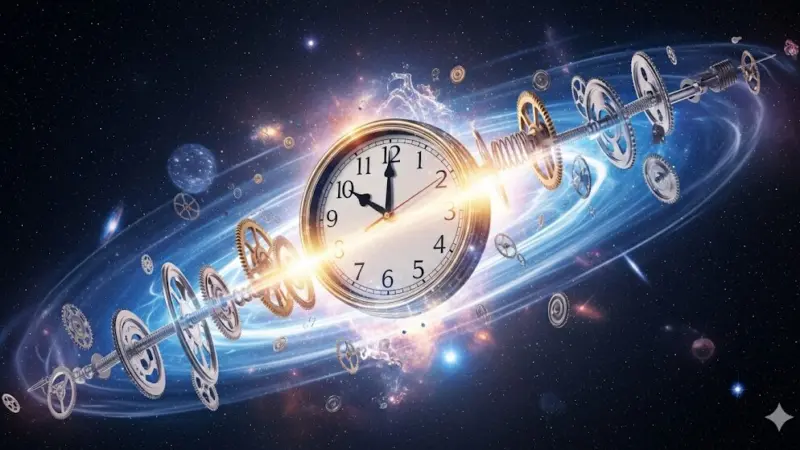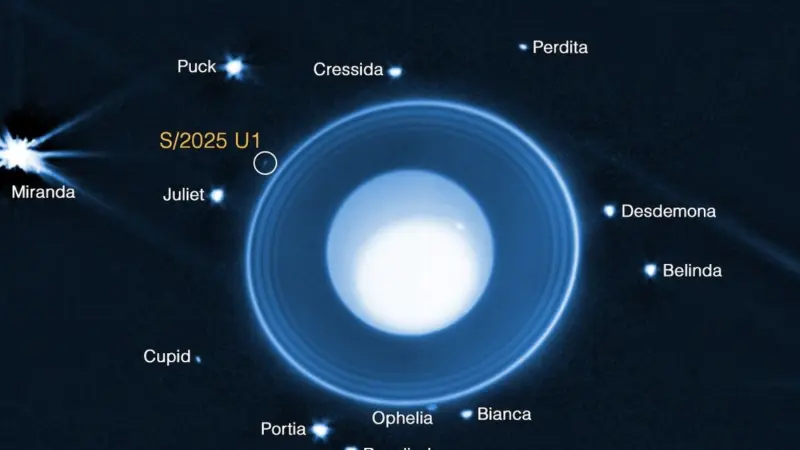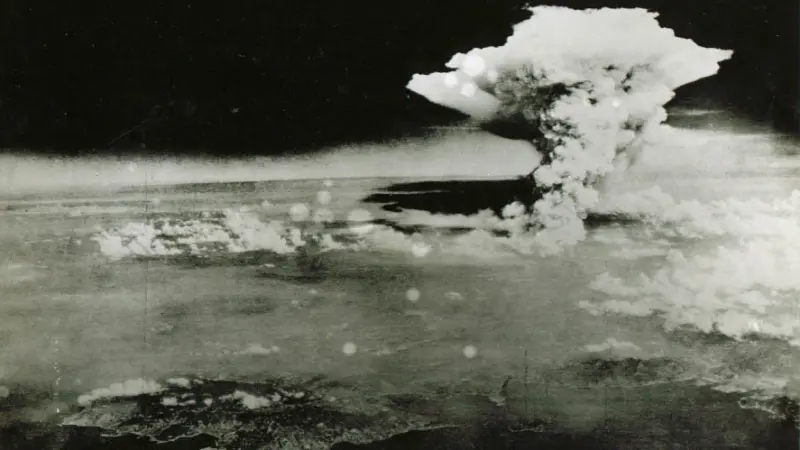Nobel Prize Honors Pioneers of mRNA Vaccine Revolution
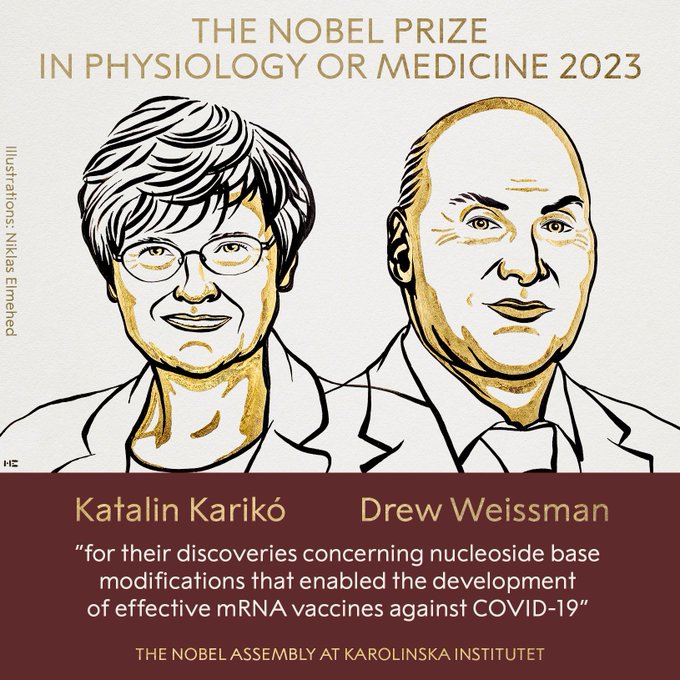
In a groundbreaking announcement, the Nobel Assembly at the Karolinska Institutet has awarded the 2023 Nobel Prize in Physiology or Medicine jointly to Katalin Karikó and Drew Weissman. The prestigious prize honors their remarkable discoveries that have paved the way for the development of effective mRNA vaccines against COVID-19, forever changing the landscape of vaccine technology.
Traditional Vaccines vs. mRNA Breakthrough
Before the emergence of the COVID-19 pandemic, vaccines were traditionally created using killed or weakened viruses or specific viral components. While these methods have been successful in preventing many diseases, they pose limitations when it comes to scalability and rapid production. Scientists and researchers have long been exploring alternative strategies that don’t rely on cell culture, but they faced numerous challenges along the way.
Karikó and Weissman’s Collaboration
During the 1980s, new methods for producing mRNA without cell culture were introduced, offering a potential avenue for mRNA’s use in vaccines. However, this promising development was hampered by obstacles such as mRNA instability and inflammatory reactions that hindered its progress towards clinical applications. It was at this critical juncture that Katalin Karikó and Drew Weissman began their collaborative work, ultimately leading to groundbreaking discoveries.
Their research, published in 2005, revealed that introducing base modifications into mRNA could overcome the limitations previously encountered. These modifications were found to reduce inflammatory responses while simultaneously increasing protein production. This breakthrough finding revolutionized our understanding of mRNA and its interaction with the immune system.
Base Modifications: A Game-Changer for mRNA
Building upon their initial revelation, Karikó and Weissman went on to demonstrate that mRNA with base modifications significantly improved protein production compared to unmodified mRNA. This crucial advancement laid the foundation for the development of clinical applications for mRNA vaccines. Interest in mRNA technology surged, and it wasn’t long before two nucleoside base-modified mRNA vaccines, encoding the surface protein of the SARS-CoV-2 virus, were developed at an unprecedented pace during the COVID-19 pandemic.
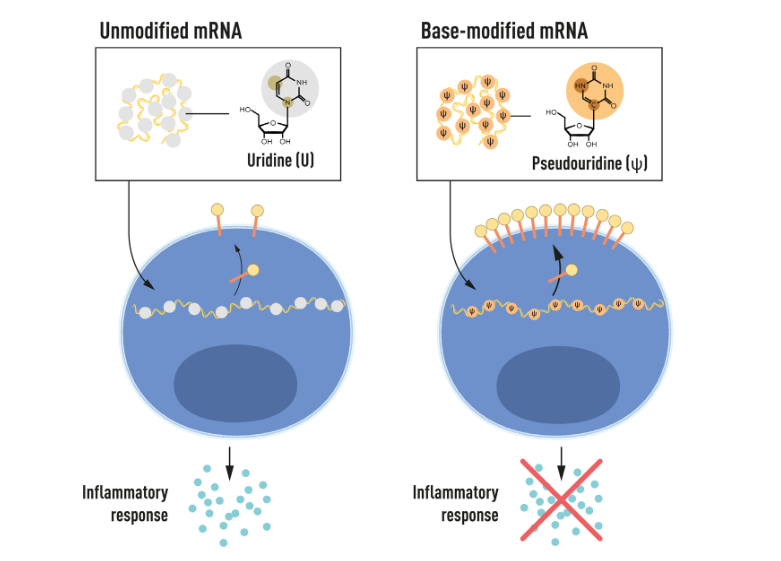
Figure: The Nobel laureates found that altering mRNA with modified nucleoside bases (A, U, G, C) reduces inflammation and boosts protein production upon cell delivery.
mRNA Vaccines: A Rapid Response to COVID-19
The efficacy of these mRNA vaccines has been nothing short of remarkable, with reported protective effects of approximately 95%. These vaccines have not only saved millions of lives but have also allowed societies around the world to regain a sense of normalcy amid the global health crisis.
Beyond their immediate impact on the COVID-19 pandemic, the flexibility and speed of mRNA vaccine development have opened up exciting possibilities for combatting other infectious diseases. Moreover, the potential for delivering therapeutic proteins and treating certain types of cancer through mRNA-based approaches holds great promise.
Katalin Karikó and Drew Weissman’s groundbreaking discoveries have played an instrumental role in the transformative development of mRNA vaccines during one of the most significant health crises in recent history. Their tireless efforts, persistence, and outstanding contributions have propelled the field of vaccines forward, forever changing the way we protect ourselves against infectious diseases.
As we acknowledge and celebrate their achievements, we can only anticipate the future breakthroughs and advancements that will surely arise from this powerful platform of mRNA technology.

